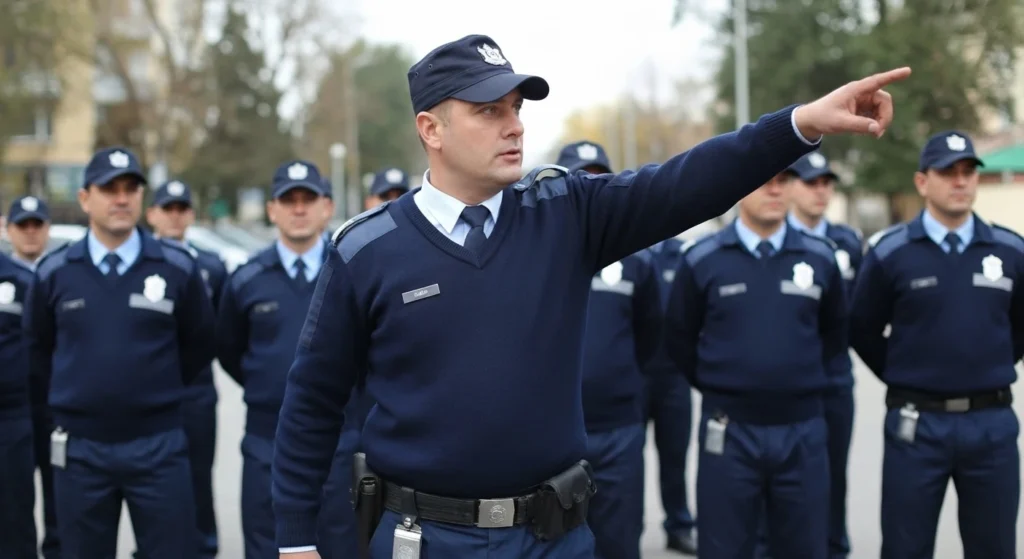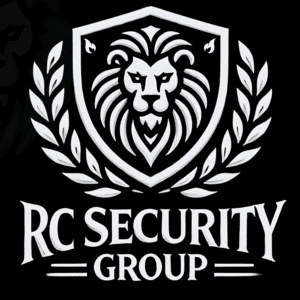Table of Contents


Security Guard Training in Brisbane City: The Complete Guide
Thinking about a career in security? Brisbane City offers strong opportunities across events, retail, corporate sites, construction projects, and more. This easy guide from RC Security Group explains what security guard training involves, what skills employers look for, and how to get job-ready fast. Here, you will also learn how professional services like event security, retail security, mobile patrol, CCTV monitoring, alarm monitoring, asset protection, personal security guard, access control, and emergency and incident response connect with your training pathway.
Why choose a security career in Brisbane?
- Consistent demand: Brisbane hosts conferences, stadium events, festivals, and rapid commercial growth.
- Flexible roles: Part-time, full-time, nights, weekends — you can build a roster that suits your life.
- Clear pathway: With the right training and mentoring, you can progress from entry-level guarding to control room, patrol supervision, or corporate protection.
RC Security Group hires hungry learners who are reliable, respectful, and safety-focused — and we invest in ongoing training to help you grow.
What does security guard training cover?
While course names and providers vary, strong training in Brisbane usually includes the following core skill areas:
- Professional conduct & ethics
- Code of behaviour, duty of care, cultural awareness, and communication with the public.
- Customer service & front-of-house skills
- Greeting visitors, giving directions, calm tone under pressure, complaint handling — essential for corporate security and reception posts.
- Observation & reporting
- Patrol routines, note-taking, logbooks, and incident reports that are clear and admissible.
- Conflict prevention & de-escalation
- Reading body language, verbal judo, safe distance, calling for support, and when to disengage.
- Crowd control basics
- Queue setup, entry screening, bag checks, refusal of entry, and intoxication indicators — key for event security roles.
- Emergency and incident response
- Evacuation steps, triage, radio codes, liaising with venue management, and first responders. Learn how these link to our emergency and incident response services.
- Work health & safety awareness.
- Hazard spotting, slips and trips, manual handling, heat stress — protect yourself and the public.
- Technology in security
- CCTV monitoring: camera positions, blind spots, evidence handling.
- Alarm monitoring: alarm types, false alarm reduction, priority response.
- Access control: cards, PINs, biometrics, visitor passes, and tailgating prevention.
- Radios, body-worn video, and incident apps.
- Patrolling skills
- Foot patrols and mobile patrol techniques, checkpoint systems, vehicle safety, and lone-worker procedures.
- Asset protection fundamentals
- Securing high-value goods, loading dock supervision, and chain-of-custody, useful for asset protection and retail security.
Tip: Look for providers that blend classroom learning with scenario training — role-plays, live radios, mock evacuations, and CCTV review exercises. Practice builds confidence.
Training pathways: where can you specialise?
Security in Brisbane isn’t one job — it’s a family of roles. Here’s how training connects to common pathways.
1) Event & venue guarding
Perfect if you enjoy people and fast-moving shifts. You’ll apply crowd control, screening, ID checks, bag inspections, and incident note-taking. Many graduates start here through event security at stadiums, festivals, and exhibitions.
2) Retail loss prevention
Focus on customer service, observation, and discreet responses to theft or aggression. Training includes evidential reporting and safe stop procedures linked to retail security settings.
3) Corporate/concierge security
Front-desk presentation, visitor management, and policy enforcement are vital. You’ll use access control systems daily and support building evacuations as part of corporate security.
4) Control room & CCTV operations
If you’re tech-minded and detail-focused, move into CCTV monitoring and alarm monitoring. You’ll monitor multiple sites, triage alarms, and coordinate guards on the ground.
5) Mobile patrol & response
Great for independent workers who like variety. You’ll conduct scheduled and random checks, lock-ups/unlocks, and urgent responses — the core of mobile patrol and emergency and incident response.
6) Personal protection
With added training, step into personal security guard assignments for VIPs, executives, and high-risk sites — where discretion and planning are everything.
Essential soft skills employers love
- Communication: clear, calm, and respectful.
- Situational awareness: noticing changes, trusting your instincts, confirming with evidence.
- Teamwork: sharing intel, backing up colleagues, using radio discipline.
- Integrity: accurate reports, protecting privacy, handling property properly.
- Resilience: nights, shifts, and weather — managing energy and self-care.
Practice every day: greet people by name, write short but complete notes, and reflect after incidents (what went well, what to improve).
Sample training plan (first 12 weeks)
Weeks 1–2: Orientation, customer service, WHS, radio use, report writing.
Weeks 3–4: Conflict management, crowd basics, access control scenarios.
Weeks 5–6: CCTV fundamentals, alarm response playbooks, evidence handling.
Weeks 7–8: Patrol routines, lone-worker safety, vehicle checks for mobile patrol.
Weeks 9–10: Emergency drills — evacuation, first aid refreshers, missing child protocol.
Weeks 11–12: Role-plays and mock shifts; supervisor feedback; employability coaching.
Outcome: job-ready for entry roles across events, retail, corporate sites, or patrols, with a clear development pathway.
How RC Security Group supports trainees and new guards
- Mentored onboarding: shadow shifts with senior officers, feedback after every patrol.
- Scenario labs: real radios, live cameras (training mode), and staged incidents.
- Clear SOPs: easy checklists for opening/closing, bag checks, patrol loops, and incident tiers.
- Career ladders: move from entry guarding to CCTV operator, patrol lead, or site supervisor.
Cross-training: rotate through event security, retail, control room, and corporate posts to find your best fit.
Compliance, professionalism & safety (what we expect)
- Licensed and insured provider: We only deploy licensed, vetted staff.
- ID and uniform standards: professional presentation builds trust.
- Privacy and data care: follow camera and access-control rules; secure your reports.
- Reasonable actions: de-escalate first, call support, document everything.
- Continuous improvement: after every major job, we review and refine.
Note: Licensing requirements and units of competency depend on state regulations and approved training organisations. Always confirm current requirements with the relevant authority before enrolling.
On-the-job tools you’ll learn to use
- Radios & call signs: fast, clear comms save minutes in emergencies.
- Incident apps & logbooks: timestamps, photos, and supervisor alerts.
- Access control dashboards: create passes, audit logs, and fix access issues.
- CCTV suites: camera maps, playback, and exporting footage correctly.
- Alarm consoles: verify, prioritise, and dispatch using site playbooks.
These tools connect directly to our service lines: CCTV monitoring, alarm monitoring, access control, and emergency and incident response.
Building your portfolio (so you get hired)
- Short CV: highlight customer service, teamwork, languages, and tech familiarity.
- Training certificates: include first aid and any advanced modules.
- Reference list: managers, trainers, or mentors.
- Sample reports (redacted): show clear writing and structure.
Availability grid: Be honest — reliability beats over-promising.
How this training helps real clients
Events: safer entry lines, clear bag checks, friendly but firm refusals (see event security).
Retail: less theft, better staff safety at closing time (retail security).
Corporate: smooth visitor flow, tidy lobbies, accurate passes (corporate security).
Patrol & response: faster lock-ups, fewer false alarms, better night coverage (mobile patrol + alarm monitoring).
Homes & VIPs: discreet presence, tailored routes, privacy-first (personal security guard).
Final thoughts: Train smart, grow fast, stay professional
A great security guard isn’t just a uniform — it’s a calm mind, sharp eyes, and a helpful attitude. With structured training, mentoring, and real-world practice, you can build a strong career in Brisbane’s growing security sector.
RC Security Group is here to help: from first steps and job-readiness to advanced roles in CCTV, patrol, access control, and emergency response. If you’re ready to start or upskill, reach out for a free training and careers chat. We’ll map your pathway and support you at every step.
Common questions (quick answers)
Do I need perfect fitness to be a guard?
You need practical fitness — able to stand, walk patrols, and respond quickly. Regular stretching and hydration on shift go a long way.
Is CCTV work less stressful?
It’s different — more screens and decision-making. You must stay alert, manage alarms, and coordinate ground teams.
How do I progress faster?
Be reliable, master report writing, volunteer for extra training, and learn site systems (CCTV, access, BMS). Supervisors notice consistent pros.





